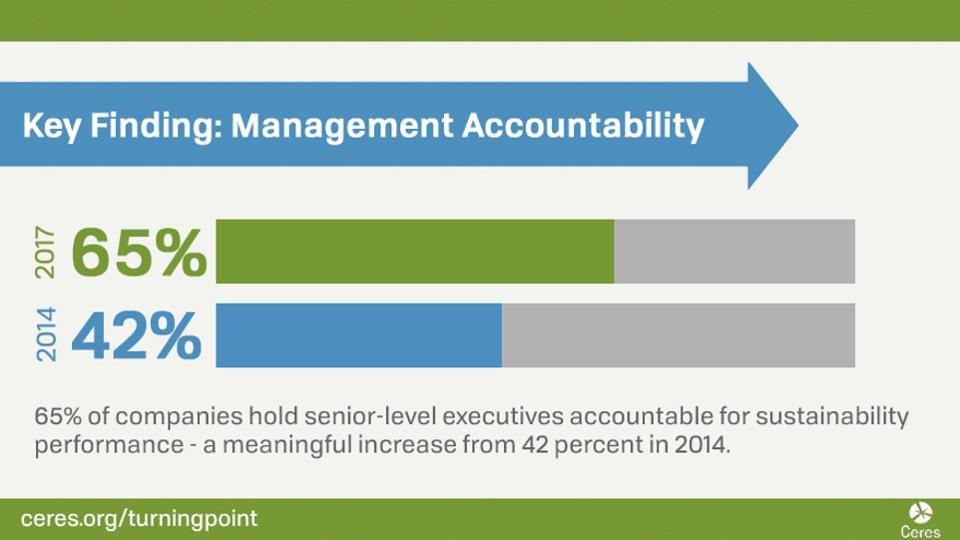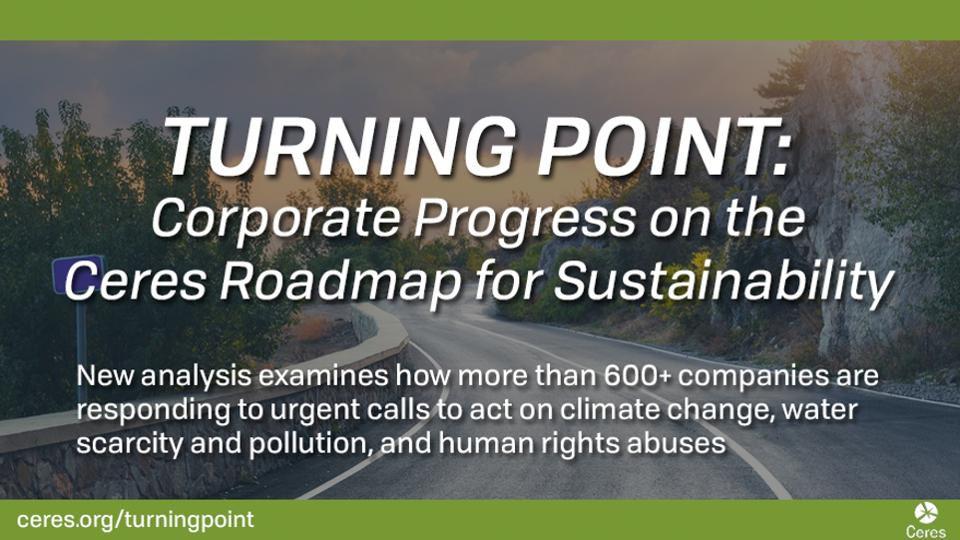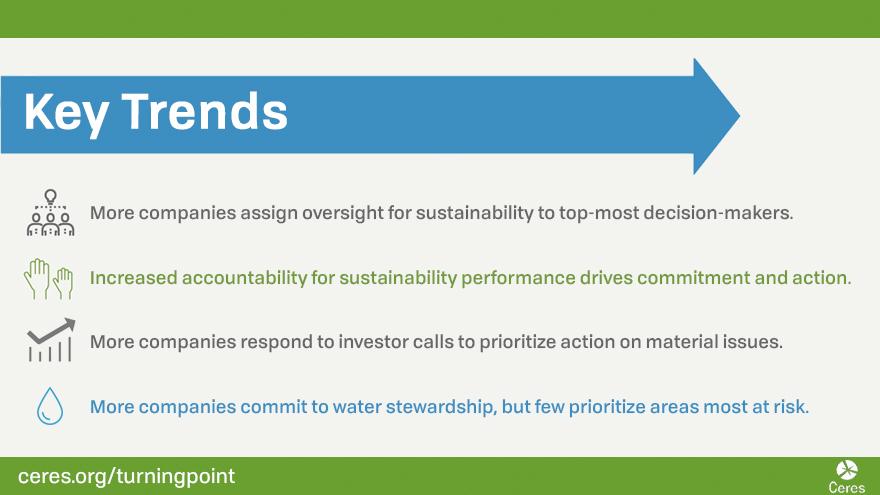Companies Must Take the Higher Road Toward a Sustainable Future
By Mindy Lubber
Originally published by Forbes
The rapidly changing climate, a global water crisis, and profound and ongoing human rights abuses undermine not only business operations, but also the lives and livelihoods of employees, customers and stakeholders.
Investors—both large and small—are ramping up sustainable investment strategies focused on environmental, social and governance issues. In the United States alone, sustainable investing grew by 33 percent since 2014 to reach $8 trillion in 2016, and will represent an estimated 4.5 percent of GDP by 2050. More and more mainstream investors are calling on companies to recognize, assess and mitigate the sustainability risks they face. The 2018 proxy season is already witnessing a flood of shareholder proposals demanding companies disclose climate change and water risks and gender pay gaps.
At the 2018 World Economic Forum in Davos, where water scarcity and climate change were once again cited among the top global economic risks, BlackRock CEO Larry Fink released a letter to the CEOs of the major publicly traded companies he invests in to make a positive contribution to society. “Companies must benefit all of their stakeholders, including shareholders, employees, customers, and the communities in which they operate,” he wrote. Without a sense of purpose, he warns, “companies will provide subpar returns to their investors who depend on it.”
In our new report, TURNING POINT: Corporate Progress on The Ceres Roadmap for Sustainability, we take a closer look at how more than 600 of the largest U.S. companies are responding to these calls and positioning themselves for success in a world increasingly shaped by unprecedented environmental and social challenges. The analysis specifically takes a closer look at the progress of more than 600 companies to meet 20 key expectations of sustainability leadership within the areas of governance, disclosure, stakeholder engagement, environmental and social performance, as outlined in the Ceres Roadmap for Sustainability.
Our findings show more companies now understand the business imperative of addressing sustainability risks and are stepping forward in greater numbers than ever before. For example, nearly two thirds of the more than 600 companies have committed to reduce greenhouse gas emissions, and more than half of the companies assessed now have formal policies to manage water resources, and nearly half have policies to protect the rights of their workers.
However, as our analysis shows, many companies are neither acting as quickly nor as boldly as they should to deliver on the global Paris Agreement and Sustainable Development Goals, and to truly transform into sustainable enterprises. Notably, we found that while 69 percent of companies call on their suppliers to effectively manage their environmental and social impacts, only 34 percent actually provide tools and resources to incentivize action. Furthermore, compared with the 64 percent of the companies with commitments to reduce greenhouse gas emissions, only 36 percent set time-bound, quantitative targets -- and only a quarter of those targets work toward reducing emissions by at least 25 percent by 2020.
And while a third of companies assessed commit to increase renewable energy sourcing, only a small fraction set targets to source at least 30 percent of the energy they use from renewable sources by 2020. Without many more companies setting ambitious, measurable and science-based targets, there is little chance we will meet the Paris Agreement goal of keeping global warming temperature rise to well below two-degrees Celsius.
As we begin to witness major global cities actually running out of water, the frightening reality for cities, local communities and water-dependent sectors is brought into sharp relief. Half of companies assessed commit to better management of their water resources, but just 15 percent set goals prioritizing action in the highest risk areas of their value chain.
We have reached a turning point. It is no longer just about raising the ceiling; it is about lifting the floor. The time has come for bold and scalable solutions, not just from a few leading companies, but from companies of all sizes and across all sectors who need to transition from making commitments to taking concrete actions.
And, we know that increased accountability for sustainability performance drives commitment and action. As our analysis shows, 65 percent of companies, up 42 percent from 2014, hold senior-level executives accountable for sustainability performance. Among the companies with goals to reduce greenhouse gas emissions, for example, 98 percent hold a senior executive accountable for sustainability performance.
TURNING POINT provides investors and companies the valuable insight they need to turn their commitments into actions, to improve resilience across operations and supply chains, and transform themselves into sustainable enterprises. It is an easy-to-use tool for investors and companies to identify key sustainability trends and leading industry practices across nearly every sector of the economy.
The more than 600 companies assessed in TURNING POINTaccount for over 80 percent of the United States’ total market capitalization and their decisions will chart the course for the global economy. We must work together to build a more equitable and prosperous world. This will require all investors and companies to take the higher road toward a sustainable future.




